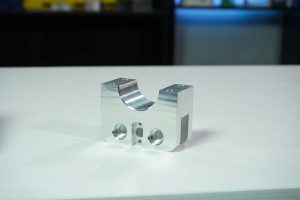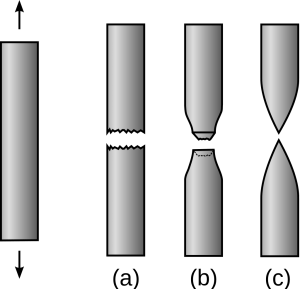Introduction to Titanium
Titanium is a lustrous transition metal with a silver color, low density, and high strength. It is highly resistant to corrosion in sea water, aqua regia, and chlorine. Often celebrated for its exceptional ratio of strength-to-density—it’s as strong as steel but about 45% lighter—titanium is used widely across a variety of applications. For instance, its resistance to corrosion makes it ideal for medical implants, while its strength and light weight are perfect for aerospace components. Similarly, because titanium is biocompatible (not harmful to living tissue), it’s used for surgical instruments, dental implants, and eyeglass frames.
The Magnetic Properties of Materials
Magnetism is a fundamental force that arises from the motion of electric charges, which results in the generation of magnetic fields. In materials science, substances are broadly classified as ferromagnetic, paramagnetic, or diamagnetic based on their response to an external magnetic field. Ferromagnetic materials, like iron and nickel, exhibit strong attraction to magnets and can retain magnetic properties even after the external field is removed. Paramagnetic materials, such as aluminum and titanium, are weakly attracted by a magnetic field and do not retain magnetic properties when the field is absent. Diamagnetic materials, for instance copper and bismuth, show a slight repulsion to a magnetic field and never serve as permanent magnets. Titanium specifically falls into the category of paramagnetic, meaning it has unpaired electrons that align with an external magnetic field but will not become magnetized permanently.
Analysis of Titanium’s Magnetic Properties
Titanium is distinguished by its exceptional strength-to-weight ratio and corrosion resistance, but when it comes to magnetism, this metal stands apart from many others. Intrinsically, titanium is non-magnetic, meaning that it does not exhibit magnetic properties in its pure state at room temperature. Unlike ferromagnetic materials, which strongly attract magnets—like iron, cobalt, and nickel—titanium remains unaffected. This characteristic makes it particularly valuable in industries where magnetic interference must be minimized, such as medical implant manufacturing or aerospace engineering applications. However, it can become weakly magnetic when subjected to extreme conditions, such as cold temperatures or the presence of a magnetic field, though these effects are negligible compared to those observed with ferromagnetic metals.
Factors Affecting the Magnetism in Titanium Alloys
The magnetism of titanium alloys is significantly influenced by their composition and the presence of impurities. Pure titanium itself is paramagnetic, which means it is weakly attracted to magnetic fields but cannot retain permanent magnetism. However, when alloyed with other elements such as iron or nickel, the magnetic properties can be enhanced due to the ferromagnetic characteristics of these additives. For instance, Ti-6Al-4V, a common titanium alloy used in aerospace and medical applications, exhibits low magnetic susceptibility because of its relatively pure composition. On the other hand, titanium alloys containing higher percentages of ferromagnetic materials can display stronger responses to magnetic fields. This behavior underscores the importance of carefully controlling the alloying process and monitoring for contaminant elements to achieve the desired magnetic properties for specific applications.
Applications of Titanium Regarding Its Magnetic Properties
Titanium’s non-magnetic nature has led to its essential use in medical devices and implants, ensuring that they are compatible with magnetic resonance imaging (MRI) machines without the risk of interference. In the aerospace industry, the material is prized not only for its strength-to-weight ratio but also because it does not exhibit magnetic properties; this means it doesn’t interfere with navigation systems or onboard computers sensitive to magnetism. For instance, in situations where minesweeping operations are conducted, the non-magnetic characteristic of titanium-based equipment is crucial to avoid triggering magnetic mines while detecting and neutralizing them safely.
Can titanium become magnetic under certain conditions?
Titanium itself is not magnetic and does not exhibit magnetism under normal circumstances. It belongs to the paramagnetic class of materials, meaning it is weakly attracted by a magnetic field but does not retain any permanent magnetism when the external field is removed. This behavior arises from the alignment of electron spins within the material in response to an applied magnetic field. However, depending on the alloying elements mixed with titanium, some titanium alloys might demonstrate a greater degree of magnetic susceptibility. This is because the intrinsic properties of titanium can be altered by these other elements, potentially leading to variations in its magnetic character.
Why is titanium preferred in scenarios where magnetism must be avoided?
Titanium is preferred in applications that require non-magnetic characteristics due to its inherently weak magnetic response as a paramagnetic metal. In situations where magnetic interference can compromise equipment performance or accuracy, such as in medical implant devices or precision scientific instruments, titanium is advantageous. Its use minimizes the risk of perturbing sensitive magnetic fields, ensuring functionality and reliability. Moreover, the additional benefits of high strength-to-weight ratio, corrosion resistance, and biocompatibility make titanium an exceptional choice for critical non-magnetic applications.
Are there any everyday items made of titanium that demonstrate its non-magnetic property?
Certain common objects exemplify the non-magnetic nature of titanium, such as spectacle frames and high-end sporting equipment like golf clubs. Titanium’s anti-corrosive and lightweight features add value to these products while also showcasing its lack of attraction to magnets. Particularly within the world of mobile phones and ultraportable laptops, the use of titanium for cases and frames ensures no magnetic distortion occurs, which could otherwise affect their intricate electronic components. These practical uses highlight titanium’s utility in safeguarding gadgets against undesirable magnetic interactions.



